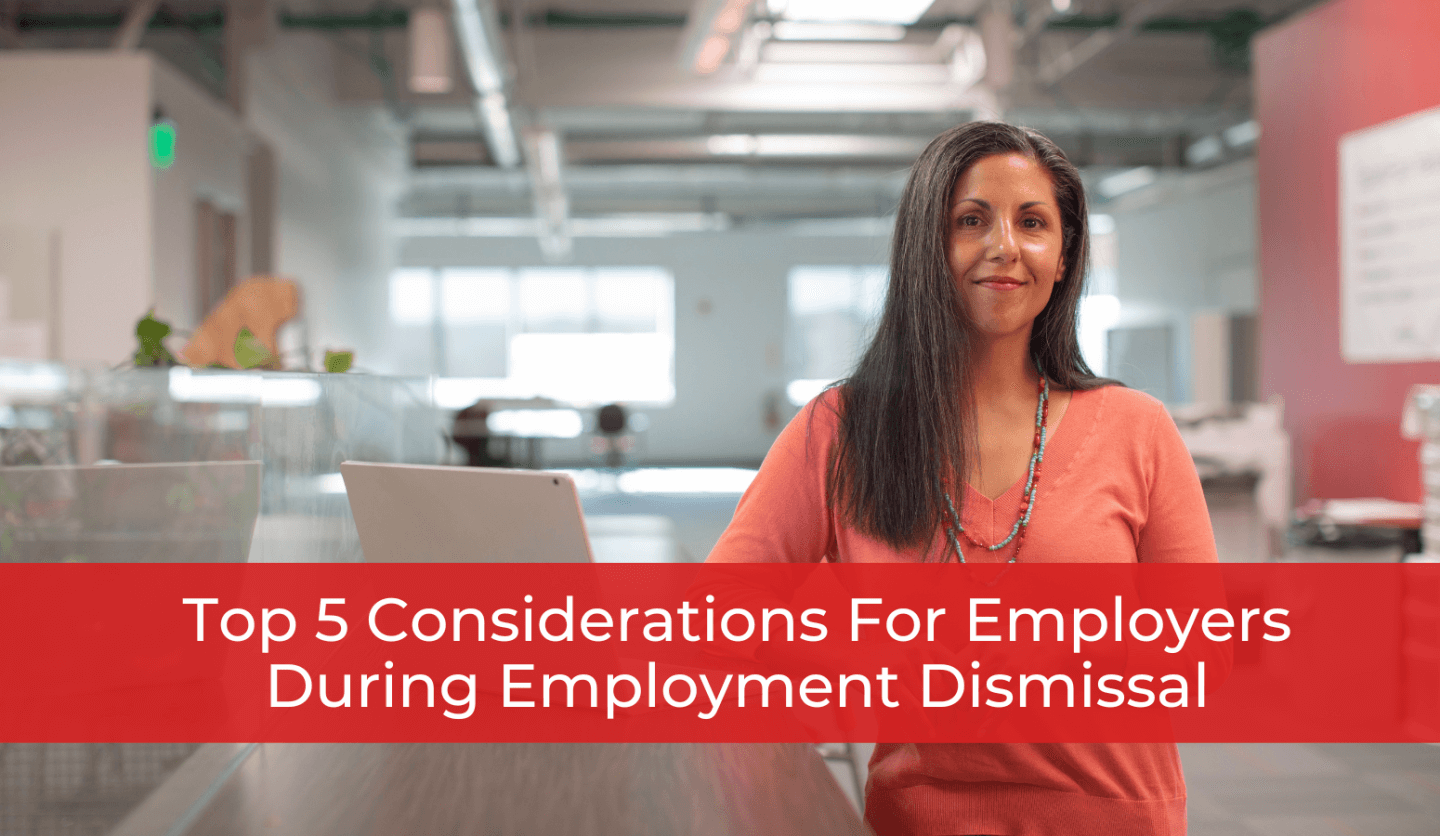
Top 5 Considerations For Employers During Employment Dismissal
Dismissals can be a difficult time for everyone. However, dismissals are an inevitable part of employment, whether due to economic pressures, poor performance, or simply restructuring. The actions that an employer takes during a dismissal can have a massive impact on whether a departure is amicable or contested. Below are our top 5 considerations for employers to make when considering an employment dismissal:
- What type of employment contract is in place?
An employment contract is the fundamental basis of the employment relationship. Whether written or unwritten, every employee has a contract with their employer. If there is no written contract in place, then there will be implied common law terms that govern the relationship, including the obligation to provide reasonable notice of dismissal. Written employment contracts may attempt to oust certain implied terms, such as reasonable notice. However, employers should be sure to have the employment contract reviewed by a lawyer to ensure that it will be enforceable, and to have a complete understanding of the employee’s entitlements.
- Is the dismissal appropriate?
Employers should be sure that they are not dismissing a worker for a reason that could be considered discriminatory or in reprisal for enforcing an employment right. For example, it could be tricky to dismiss an employee immediately before, during or after a medical leave of absence or parental leave. Employment Dismissals that are close in timing to a job-protected leave of absence can quickly raise eyebrows and be perceived to be related to the employees need for the leave. This can open the door to a claim for discrimination and significantly increase the liability to an employer. Similarly, employers should not dismiss an employee for making a complaint related to an employment right. Employers with any questions on what may be considered a protected leave or right should speak with employment counsel before the dismissal.
- Is the dismissal ‘with’ or ‘without cause’
Whether an employee is dismissed with or without cause will determine whether they are entitled to a severance package. Employers often wonder if they can dismiss an employee for cause due to performance concerns or misconduct. In Ontario, there is a very high threshold for cause dismissals, and employers should be very cautious before jumping to cause dismissals. Cause must be supported by significant performance issues or misconduct that go to the root of the employment agreement, and often a history of warning and progressive discipline. Employers should always discuss with a lawyer before deciding to dismiss an employee without a severance package.
- How to conduct the dismissal itself?
How an employer handles the dismissal itself can make the difference between an amicable departure and a contested wrongful dismissal lawsuit. Every employee deserves to be let go with respect, courtesy, and clarity. While dismissals will often come as a surprise, how an employer communicates that message can have a big impact. Employers should consider who is the most appropriate to deliver the message, where it should take place to ensure privacy, and be sure to have two company representatives in the room for the dismissal. We also recommend that employees are dismissed early or mid-week, to avoid having them feel frustrated over the weekend.
- What to say during the dismissal?
Without cause dismissals do not require an explanation. To avoid issues, we recommend limiting the amount of information given to the dismissed employee. While it is a common and expected reaction for an employee to understand why this is happening, it is important to be mindful of what information is shared. Employers should ensure that the information is truthful, so that the employee does not turn around to see conflicting information, such as an advertisement for the role they were being told was eliminated.
Before making the decision to dismiss an employee, it is important to speak with an experienced employment lawyer. We at Whitten & Lublin are happy to provide insight and advice into your specific circumstances. If you are looking for employment lawyers and would like more information about what Whitten & Lublin can do for you, please contact us online or by phone at (416) 640-2667 today.
Author – Rachel Patten



